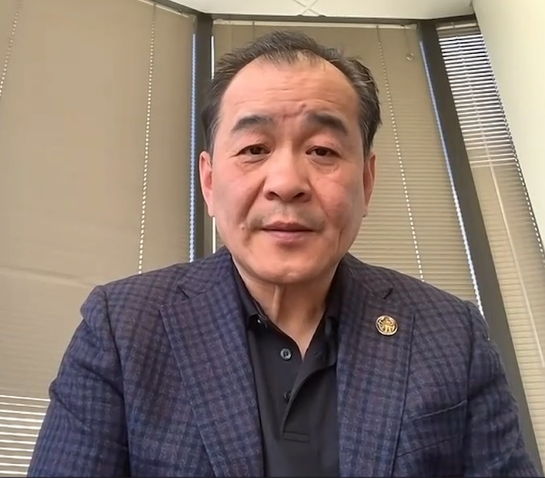After 30 years of being chronically underfunded, Indigenous Police Chiefs of Ontario are done with the “take or leave it” funding agreements for First Nation police services set out by the federal government.
Late last month, the Indigenous Police Chiefs of Ontario filed a human rights complaint against Public Safety Canada, accusing Ottawa of "ongoing systemic discrimination perpetuated by the government of Canada through its deliberate and wilful under-funding and under-resourcing of the safety of Indigenous communities through the First Nations and Inuit Policing Program.”
Kai Liu, the president of the Indigenous Police Chiefs of Ontario and the chief of the Treaty Three Police Service, said the current system does not allow police services to negotiate funding increases.
"Essentially what happens is prior to the expiry date, Public Safety Canada will give us our new funding agreement and it’s very much a take it or leave it,” Liu said.
The Indigenous Police Chiefs of Ontario have not renewed the current agreement, but instead have challenged that the federal government has breached the Human Rights Tribunal Act and not complied with the terms of the First Nations Policing Policy.
The complaint states that the government's First Nations Policing Policy mandates that “Canada’s own self-imposed standards for equity, requiring, at minimum, that First Nations benefit from the same standard of policing available to non-Indigenous communities, and that policing be provided in a culturally responsive manner.”
Just over half of the funding — 52 per cent — comes from the federal government through Public Safety Canada, while the remaining 48 per cent is funded through the Ontario government.
The Indigenous Police Chiefs of Ontario allocates the funding to all nine First Nations police services across Ontario, which serve 85 First Nations communities.
Liu said understaffing is a major concern for his police service.
“When someone calls the Treaty Three Police, it could take anywhere from one hour to three hours for our officers to respond. We simply do not have enough officers to have officers in every one of our 23 communities,” Liu said. “The majority of the communities are un-policed because the officers are in another First Nation community.”
Another issue raised by the Indigenous police chiefs is the lack of funding to allow for the development of specialized policing services, such as emergency response teams, canine units, and forensic services.
That leads to First Nation Police Services often hiring outside agencies or requesting non-Indigenous police services to provide these types of specialized services.
“That’s not acceptable,” Liu said. “That’s like naming 23 municipalities within the province of Ontario saying that they have no policing.”
“We know that within our First Nation communities, the different issues that we address from a policing perspective change with time, and as well, the need for additional resources is identified prior to the expiry date. Yet we are not given an opportunity to present those changes.”
Liu states that in the past, the renewed agreements with the federal government would be signed in fear of not being able to provide police service for First Nation communities.
“This time around, if it’s an option of take it or leave it, [IPCO] are going to leave it,” said Liu.
As a result, Treaty Three Police, along with two other Indigenous Police Services in Ontario currently do not have a funding agreement with PSC.
"At some point, in the absence of a tri-apartheid funding agreement contract renewal, we will run out of funds to operate, and then, we will have 45 First Nation communities in Ontario that will be without police services,” Liu said.
The human rights complaint comes at the same time that the federal government has pushed back tabling legislation to make First Nation Police Services an essential service.
This came as no surprise to Liu.
"The essential service legislation was being presented as the panacea or the magic wand that’s going to fix the chronic underfunding,” he said.
“If Canada is not willing to come to the negotiating table and adequately fund our current police services, I don’t know how, if tomorrow there was an essential service legislation, how that would change the chronic underfunding,” said Liu.
Liu hopes the government will come to the table and negotiate a new funding agreement that meets the equitable standards of policing services.
“The ability to call the police and have the police response in a reasonable timeline, I don’t think it’s too much to ask,” said Liu. “It’s no different from getting potable drinking water in our First Nations communities.”
